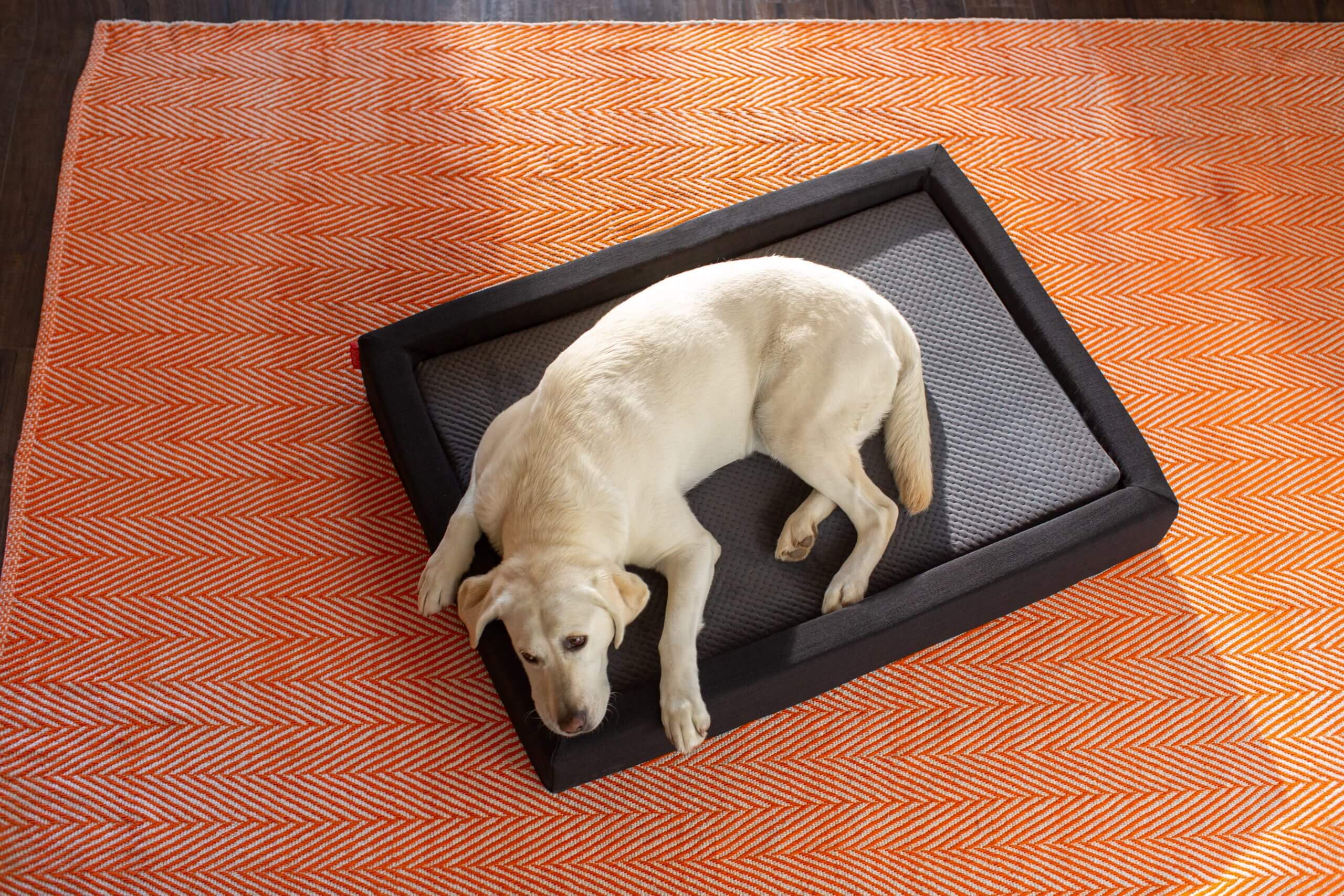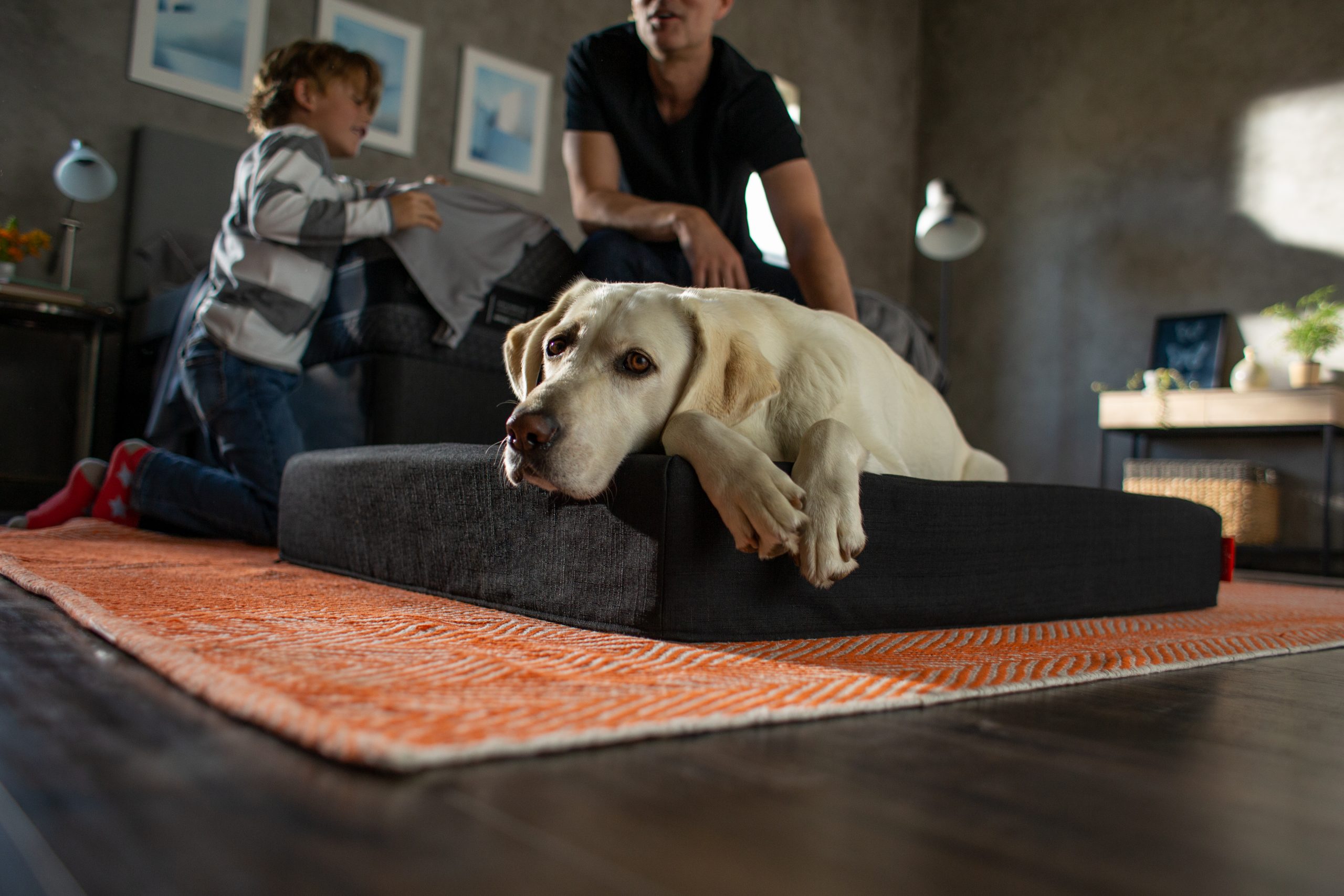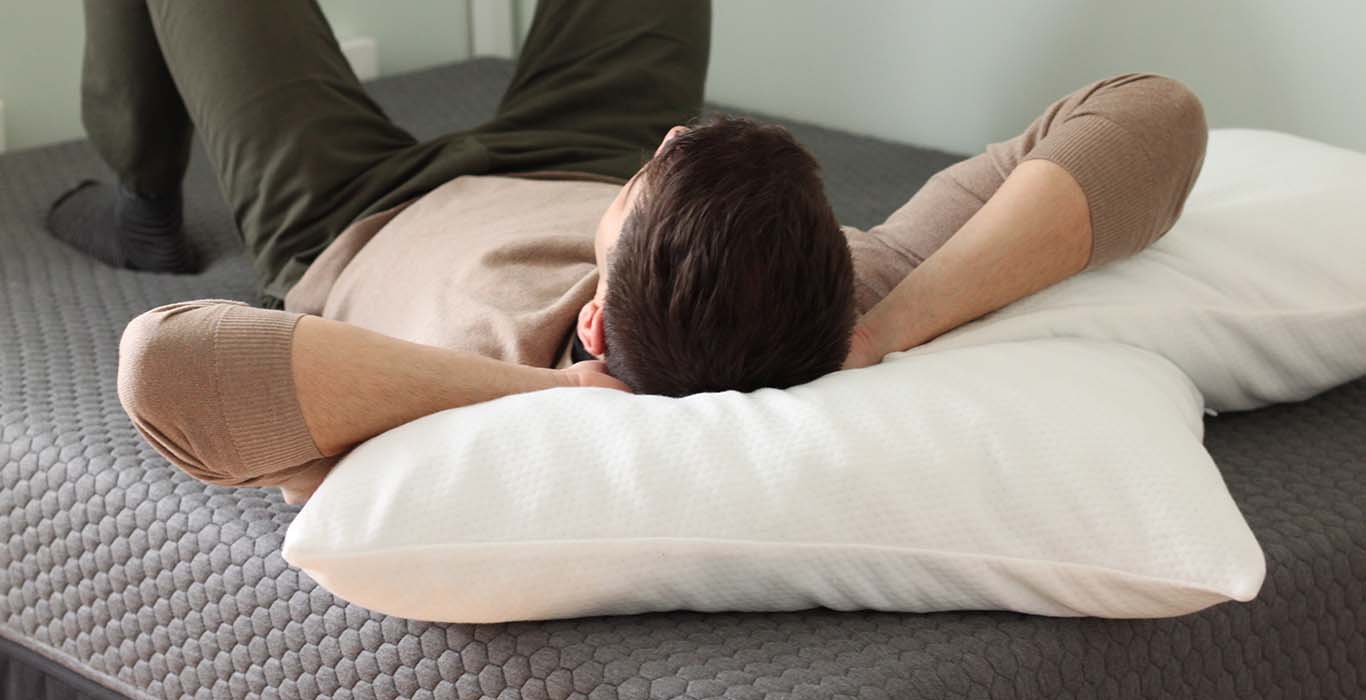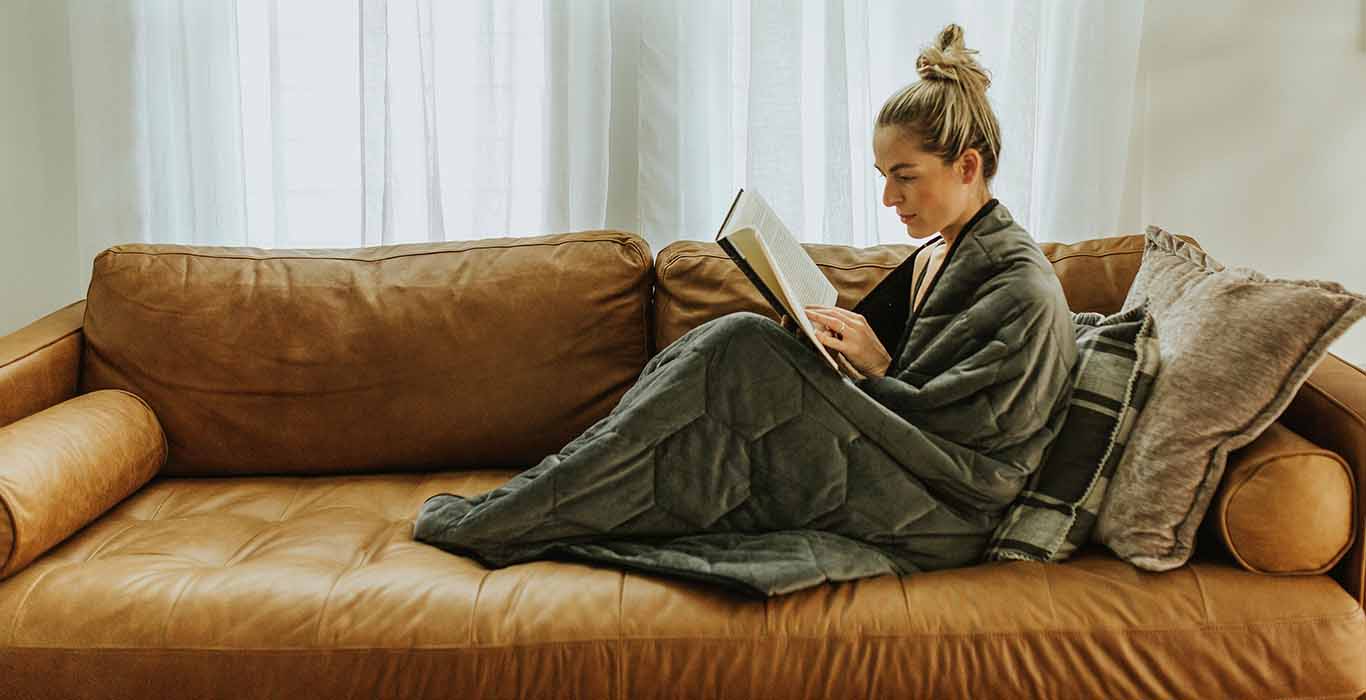However, in the modern world, humans have the benefit of heaters, blankets, and other technological advancements. But that hasn’t stopped many pet owners from continuing the tradition of bedtime with their four-legged companions.
While a dog sleeping in bed with you might be borne out of centuries-old tradition, is it actually safe for you and your dog? Below, we’ll dig into the benefits and of sleeping with dogs.
Is it Safe to Sleep with Your Dog?
One of the main arguments against sleeping with dogs in bed is rooted in the belief that doing so will encourage bad behavior in the dog. This is the so-called dominance theory, which has been debunked by animal scientists and behaviorists time and time again. This theory proposes that letting your pup in bed with you means she’ll start terrorizing the household since she thinks she’s the new boss in town. It turns out that’s not true, and in most cases, it is safe to sleep with your dog.
Note: If you do find your pup is showing aggressive behavior, it’s likely the aggression isn’t caused by any bed-sharing; instead, it may be a fear response caused by other factors. This is especially relevant if your pup is a rescue. Make sure you always pay attention to your dog’s subtle behavioral cues, regardless of your decision to let your pup sleep in bed with you or not.
When is it not safe to sleep with your dog?
Although sleeping with your dog is generally safe for both you and your pet, there are instances where it’s a good idea to avoid it.
- If you’re immunocompromised: If you’re suffering from an illness, it’s important to avoid taking unnecessary risks with your health. Although sleeping with a dog is okay for the majority of the population, an overworked immune system might not be able to fend off disease from your pup.
- If your dog isn’t vaccinated: It’s important that your pet is up to date on all vaccines, otherwise you risk illness and disease.
- If you have a small dog: It’s not small dogs themselves that are the cause for concern here, it’s actually the owner that’s a risk to the dog. If you accidentally roll over on them, you could injure them or cause them to injure themselves if they fall off the bed as a result.
- If your dog is showing signs of aggression: While it’s typically safe to allow a dog to sleep in your bed, you should never share your sleeping space with an aggressive animal.

Benefits and Drawbacks of Sleeping with Your Dog
Is a dog sleeping in bed part of a healthy nighttime routine? For the right pet owner, it could be. Read more below about some of the benefits and drawbacks of allowing your ball of fluff to keep you company at night.
Benefit: Warmth
If it’s a “three-dog night,” your dog provides some serious extra warmth. Dogs have a higher core body temperature and can keep the bed a little hotter during those cold winter nights.
Drawback: Too warm
During the summer, however, it can leave you feeling hot and uncomfortable – especially if you’re already a hot sleeper.
Benefit: Preventative health boost
Interacting with dogs can help lower your blood pressure and reduce the risk of dying from heart disease. Sleeping with a dog is good for your heart health and stress levels. For some anxiety sufferers, a dog in bed can provide a measure of security and comfort. or those who have phobias of the dark or who live alone, a dog sleeping in bed can help ease worries.
Drawback: Illness
Although it’s not a serious risk in most cases, it’s important to ensure that the pet sharing your bed is healthy. Make sure your pet has regular checkups at the vet and is checked for common parasites like fleas and ticks. Up-to-date vaccinations are also crucial to both the health of your pet and you to lower the risk of transmission of diseases. With that said, if you are immunosuppressed and have cancer or HIV, sleeping with your pets should be avoided.
If you have allergies and allow your dog in bed, you’re risking making your allergies worse. And even if you’re not allergic to the dander of your pup, your dog might bring other kinds of allergens into your bedroom, like pollen or grass. This could be one of the reasons your allergies are worse at night. In turn, laundry day for your bedding might come up sooner than you’d like if you sleep with a dog who’s exacerbating your allergies.
Benefit: Quality time with your pup
Many pet owners are gone for the majority of the day, which means your dog might be alone for eight hours or more. Dogs are social animals that need human interaction. Evidence from animal behaviorists suggests our dogs view us as weirdly shaped family members. Sleeping with your dog in bed at night could provide dogs with that necessary social bonding time they’re missing during the day.
Drawback: Lack of spontaneity with partner
Should you sleep with your dog? The answer to this question is ultimately an individual choice. Unless you regularly share a bed with a human partner, that is. Couples deciding whether or not they want their dog sleeping in bed with them should consider the lack of spontaneity that might occur as a result.
Benefit: Companionship
Many sleepers keep loneliness at bay by inviting their pets into bed, after all, what’s better to see in your bed than a friendly, fluffy face? A dog or cat can provide emotional comfort to those that may not receive emotional intimacy from friends and family.
But that new bedmate might have unintended consequences for your sleep quality…
Drawback: Sleep disruption
Another potential drawback of a dog sleeping in bed is sleep disruption. Unfortunately, a rogue paw or a dog who decides to sleep on your legs can affect the quality of your sleep. For example, if you have a bigger dog, it might be difficult to move him or her during the night. We all know what sleeping with a bed hog is like, now imagine sleeping with a bed hog who doesn’t understand the word, “Move!”
Dogs may also wake up in the middle of the night to dig or scratch into bedcovers to get more comfortable. They might leave the bed for a night patrol to make sure their home and humans are safe. If you have a cat, you might be at the wrong end of a nocturnal case of the “zoomies” and get woken up by your cat trying to play at the expense of a good night of rest for you.
Dogs and cats are both polyphasic sleepers with about three sleep/wake cycles. In contrast, humans are monophasic sleepers who get rest once during a 24-hour cycle. As such, sleeping with an animal means your pets are likely to wake up at some point in the night. If you’re not a heavy sleeper, this could result in a loss of sleep.

The Compromise: The Layla Memory Foam Pet Bed
For your best, uninterrupted sleep, we recommend that you don’t share the bed with your dog. But that doesn’t mean you have to leave your pup out in the cold. Treat your furry best friend to a memory foam pet bed from Layla Sleep so Fido can have his own night of blissful slumber.
If you plan to invest in your own sleep environment with a copper-infused mattress from Layla, consider getting a companion pet bed as well. Both of you will love the adjustment. If your dog still wants to sleep in an elevated position next to you, place a bench near the end of your bed and place the pet bed on top. This delivers the best of both worlds so you can sleep with your pet near you—without sacrificing your rest.



